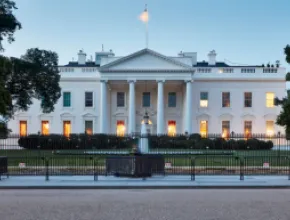[Editor’s Note: This letter was drafted by MPI to provide an explanation of the recent changes to the CMM (Certificate in Meeting Management) program, and to address recent criticism from some in the CMM community about those changes.]
“Our goal is to be 'THE' collaborative association in the meetings industry as it is our responsibilities to not only improve MPI, but to improve the broader meetings industry.”
That was a very clear message delivered by MPI IBOD Chairman, Michael Dominguez at the 2013 WEC in Las Vegas last year. Part of that collaborative mission led to the announcement of an enhanced partnership with GBTA to extend the professionalism of the CMM to a broader meetings audience that included changes to the program.
In early January, it was brought to the MPI staff’s attention of some concerns with some of the proposed changes to the CMM program by some members of the CMM community. This led to a conference call with MPI staff, Chairman Dominguez and this community. The MPI staff listened to the concerns and made it clear that more research would be done with a larger audience and any changes/concerns that would enhance the program would be considered and implemented once reviewed thoroughly.
A series of conference calls were conducted as well as a focus group of CMM members to pull feedback from a variety of audiences.
After aggregating and analyzing this feedback, MPI found a number of consistent recommendations, which if implemented, would strengthen the CMM Program going forward. After reviewing the recommended changes with GBTA, there was agreement to make changes to the CMM Program as follows:
PageBreak
Branding
The program will retain the Certificate in Meeting Management name and may also be referenced by the CMM acronym.
Eligibility
The criteria for participation in the CMM Program have been revised as follows to better align with the Meeting and Business Event Competency Standards (MBECS). Each candidate will be evaluated through a comprehensive application process with documented panel review against the following criteria.
- Minimum of 7–10 years of professional experience in the meeting and event or business travel industry
- Minimum of 3–5 years of management experience with two years of profit and loss responsibility
- Personal statement and letter of recommendation from professional colleague or supervisor
Assessment
Each future CMM Program participant will be required to develop a business case in which they must apply the course materials learned. The business case should reflect real situations, address current challenges that need to be resolved and be actionable, meaning the participant must have responsibility and influence over the challenges’ outcome. Each participant’s business case will be evaluated and scored against a pre-established standard of performance or rubric by CMM Program faculty.
Designation
Professionals that achieved the Certificate in Meeting Management from MPI prior to 2014 will retain the CMM designation, which is now supported by both MPI and GBTA. GBTA will communicate directly to individuals that achieved the comparable GBTA certificate regarding parameters for using the CMM designation.
It was very rewarding to show the “new” MPI in full force as feedback was received, listened to and acted upon where it made sense in enhancing the initiative. From the beginning the intent was to broaden and strengthen the CMM curriculum, delivery and recognition to a larger audience. The continued strength of the designation into Corporate Boardrooms will be achieved with a larger community.
“Bandwidth is necessary to broaden the recognition of the designation to leaders not involved in the meetings industry on a day to day basis,” Dominguez says. “These stakeholders are critical to the Meeting Professional in accomplishing a more complex objective in delivering meetings today.”
“At our core, MPI remains member centric and is committed to professional development for our members and the meetings industry as a whole,” Dominguez adds. “The entire process shows a spirit of openness and collaboration that will remain the focus of MPI Leadership and Staff.”
We live in a rapidly changing industry and the ability to move in a nimble and responsive approach will be the key to the success of MPI.






